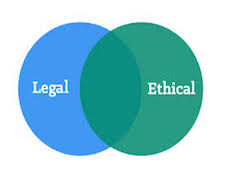It’s the time of year for saving money!
During a recent discussion with an audiophile friend, the subject of the future of audio dealers came up. All audiophiles know the dealer network has suffered over the last twenty years. Where they were once found in most any modestly sized city, they now seem confined to larger metropolitan areas. Quite a few have abandoned the high cost of a commercial sales store and operate out of their home to reduce cost. But many now face even larger threats – the Internet and manufacturers who have decided to sell direct.
 In principal, buying direct may sounds like a good thing for consumers. Any buyer may simply pick up the phone, call the manufacturer, place an order, and in a few days the new component will arrive. In the process consumers save money and it keeps the industry moving along. Everyone wins, right?
In principal, buying direct may sounds like a good thing for consumers. Any buyer may simply pick up the phone, call the manufacturer, place an order, and in a few days the new component will arrive. In the process consumers save money and it keeps the industry moving along. Everyone wins, right?
In actuallity, this sales model may not be the path to the audio version of financial bliss. Price and cost are very often separate things. Purchases made by less informed consumers sometimes leads to incorrect choices – and the necessay replacement of the wrong item. Where’s the savings then?
What of the future for high performance audio dealers? Will audiophiles ever see a day when purchases are made directly from a factory or master importer and not from a dealer? Will the decision of what to purchase be made solely on the advice of friends, online forums, one’s own choices and a product review? Will a factory service center, interested primarily in selling their own equipment, be willing to recommend a competitor’s products because they think it will be better in your system? Will the same audio dealers who loan demo equipment for in home trials, deliver and help install equipment, provide suggestions on system synergy and in some cases, actually become a friend, simply cease to exist?
I see this paradigm as potentially being divided into two main camps – one, those predominately interested in a relatively minor audio investment. They only want to spend a minimal amount and their choices are guided more by cost than performance. If they can secure a system that sounds better than something obtained from a big box store, and do so for a nominal sum, then fine. Those goals do not especially require equipment trials to evaluate sonics and be sure the component is the best choice.
 The second are consumers dedicated to a certain level of sonics where budgetary concerns are not at the top of the list. They may have a figure in mind of how much to invest, but will easily spend substantially more to achieve a certain sound or overall component parity. This customer will very likely have an investment of at least five and most likely six figures in their system and they will often seek the advice of an audio dealer not only for suggestions but also for demo equipment.
The second are consumers dedicated to a certain level of sonics where budgetary concerns are not at the top of the list. They may have a figure in mind of how much to invest, but will easily spend substantially more to achieve a certain sound or overall component parity. This customer will very likely have an investment of at least five and most likely six figures in their system and they will often seek the advice of an audio dealer not only for suggestions but also for demo equipment.
It is important to realize that the number of people in the first group is in far greater abundance than those in the second. Volume is required in order for manufacturers to remain in business. Perpetuating sales volume in units sold will not come from customers buying $50,000.00 amps and $100,000.00 speakers. Repeat volume comes from buyers of $1000.00 amps and speakers. Despite what many may think about profit margins of expensive audio equipment, having a larger number of customers, regardless of the price point, is almost always preferred.
It may come to pass that in the future, dealers will be forced to carry more expensive products in their showrooms catering to a more affluent customer base. They may, by necessity not choice, have to rely on lower numbers of units sold with a higher dollar per sale and relinquish the inexpensive equipment to a direct sales model. Clearly, this dramatic of a change will not be welcomed. Perhaps the more appropriate question is should it be allowed at all?
None of this speaks in any way to the consumer who uses a dealer’s showroom to demo a product then goes out and buys it, whether new or used, online. Legal? Of course. Ethically questionable? Yeah, probably.
So what is the future of audio dealers? Will they be consigned to wealthy buyers who purchase one or two components a year but spend substantially more per order? Or will they continue to offer helpful advice and sell audio and home theater equipment at all price points? Or will they vanish all together? Will the average audiophile consumer come to see a dealer as a bygone relic of a failed business model, or a valued supplier of realistic advice and service beyond the sale? How will the audio enthusiast obtain new equipment in the years to come?
Time will tell.





